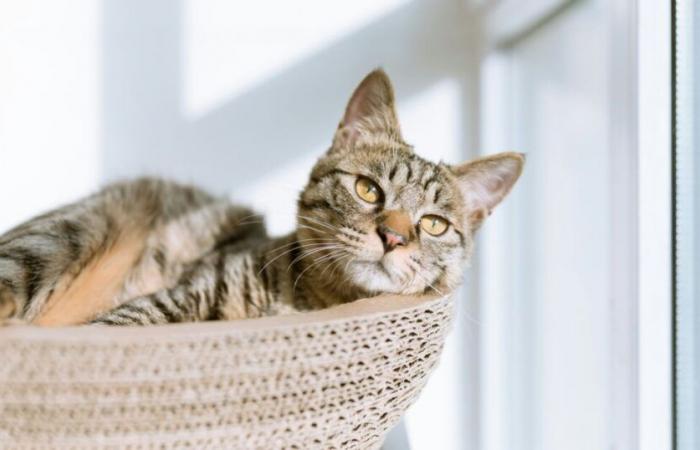The solitary and independent nature of cats suggests that they are not sensitive to grief. However, a study published in August 2024 reveals that cats are sad when they lose a companion.
Faced with the death of a loved one, a human being is overwhelmed by pain, grief, nostalgia and even anger. But what about pets? In 2022, a study showed that dogs changed their attitude when faced with the loss of a canine companion. However, it was previously difficult to determine whether cats were also sensitive to the death of a cat or dog friend, because they are less expressive. However, a study by researchers at Oakland University reports some surprising findings about the grieving period in our feline companions.
Losing an animal: does a cat sense the disappearance of another cat or the loss of an animal?
For this experiment, the researchers solicited 412 cat owners and 452 animals. All of them had in common that they lived in a house with several companions, including one who had recently died. The owners had to provide information on any changes in the cat's behavior or habits during this period of mourning. However, the results suggest that the longer a cat lived with the missing animal, the more impactful the loss of a companion was. In fact, the smell of the missing friend remains in the house, but the animal is not physically present. Without this feline or canine companion at its side, the animal is the victim of an upheaval in its habits. This painful step for owners can be just as confusing for cats and cause unexpected reactions to appear.
Death of a companion: how do animals grieve?
In cats, the grieving period may be linked to a general change in behavior. Initially, “vocal” reactions may occur such as howling, insistent meowing or spitting. The loss of a companion can also cause depression in the animal. Shortly after the death of a friend, owners may observe a decrease in appetite, sleep disturbances, a fruitless search for the missing companion and the remains of its smell. Finally, some more independent cats may experience a radical change in behavior and seek the company of their owner, as if to help them share and overcome this form of deep grief.
Deceased companion: how to console a grieving cat?
To make the loss of a companion less painful, it is important to keep habits in place. The cat must continue to take its meals at the same time, without changing the content, even if it lacks appetite. Then, owners are invited to increase the number of intimate moments with the cats if they request it. Do not hesitate to talk to the animal, to caress it or to brush it more. Removing the missing companion's belongings is also important to eliminate his smell. Finally, adopting a new cat or dog should not happen too quickly. The animal must be given time to grieve and any additional source of stress must be avoided.
Sources :
You may also be interested in:
Here are the things cats hate the most
Ranking of the easiest cat breeds to train
Why do cats cover their feces?
What smells particularly attract cats?
Why do cats sleep in a ball?
Here are the dog breeds most compatible with cats






